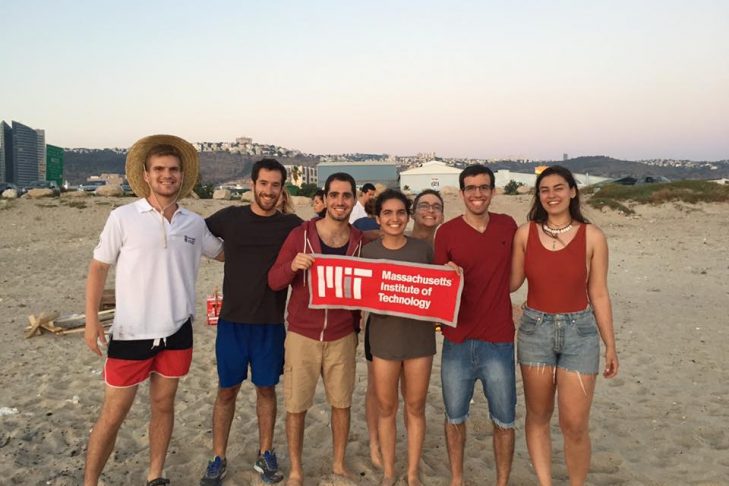ConnecTech is a year-long fellowship for MIT and Technion Jewish students. The primary focus is on student interaction—creating personal bonds between small core groups of students at each institute and strengthening a sense of Jewish peoplehood. For more information or to read our Fellows’ bios, visit our website.
On our last full day of ConnecTech, we went to the Carmel beach, and after the sunset, sat around the fire cooking poyke (a delicious Israeli stew) and talking. I enjoyed swimming in the waves and helping cook, but my favorite part of the night was a long debate with three Israelis which begun with the question, “Should there be public transportation in Israel on Shabbat?” This wasn’t the first time I had confronted this question in a group, but this time, surrounded by one Orthodox and two secular Israelis, I realized how intertwined it was with Israelis’ identities and the nature of their country.
For the Orthodox Israeli, the lack of public transportation on Shabbat was crucial to Jewish character of the state, which he believed should be guided by traditional Halachic principles. If the state didn’t respect Shabbat, what did being a Jewish state even mean? For one secular Jew, strongly in favor of public transit on Shabbat, the state’s religious policies were coercive; the lack of transit meant she had to buy a car to get home on Shabbat to see her family. For the last Israeli, who sought out more religious opportunities, the state’s policies were coercive in that they assumed that the only form of authentic Judaism was Halachic Orthodoxy.
For me, this conversation was fascinating because it raised the larger question, “What does it mean for Israel to be a Jewish state?” As an American, having been exposed to many denominations and different ways of being Jewish, I could understand why these policies seemed imposing to non-Orthodox Israelis. Furthermore, I was discouraged by how these policies made secular Israelis feel distanced from their Judaism. Given these feelings, I even more appreciated many of the experiences earlier in the delegation visit (the Conservative Kibbutz, Hanaton and Midrashat Oranim aiming for Jewish Renewal), which offered opportunities for Israelis to be authentic Jews in a variety of ways.
This post has been contributed by a third party. The opinions, facts and any media content are presented solely by the author, and JewishBoston assumes no responsibility for them. Want to add your voice to the conversation? Publish your own post here. MORE

